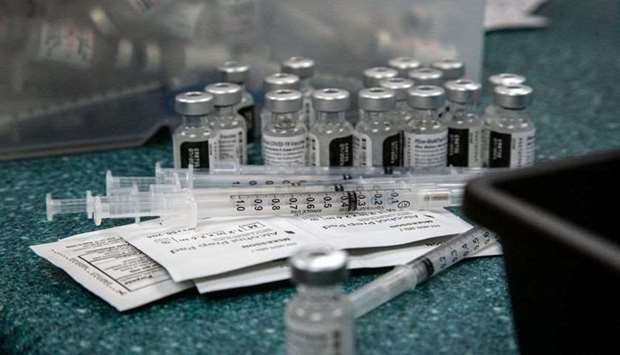Health officials in Georgia sounded the alarm Wednesday over the slow pace of coronavirus vaccinations, after some 17,000 doses of the AstraZeneca vaccine had to be destroyed because they expired.
The Black Sea nation is in the midst of a devastating new wave of the pandemic despite vaccines being widely available.
The country of 3.7 million people saw record numbers of daily cases this week, with 6,024 new infections on Wednesday, and was the country with the fifth-highest number of cases per 100,000 inhabitants in the week to Tuesday, according to a tally from official sources compiled by AFP.
Overall Georgia has reported nearly 733,000 cases and more than 10,000 deaths.
"The government has made available a wide choice of internationally approved Covid-19 vaccines, but the rollout has slowed significantly since the summer," the deputy director of Georgia's National Centre for Disease Control, Paata Imnadze, told AFP.
"As a result, we were forced to destroy 17,000 expired AstraZeneca vaccines."
If the trend is not reversed, "we will soon face... a sharp increase in mortality," Imnadze said.
This summer the ex-Soviet republic's government set up vaccination points in shopping malls and sent medical brigades to villages to speed up the rollout.
The finance ministry in September launched a lottery in which cash prizes are awarded to both partially and fully vaccinated people.
But many health professionals have criticised the government's efforts as insufficient.
"There was practically no information campaign to raise awareness about the vaccination's importance and safety," the head of the critical medicine department at the Tbilisi-based New Hospital, Vakho Kaloyan, told AFP.
Only a third of Georgia's population has been vaccinated with at least one dose since the country began a national coronavirus vaccine drive in March.
Georgia received a donation of some 43,000 doses of AstraZeneca through the UN's mechanism for vaccine distributions, Covax, as well as 500,000 doses of the Pfizer vaccine from the United States.

